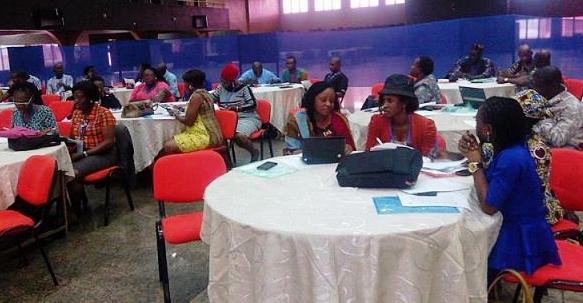
The United Nations Children Fund (UNICEF) has urged media practitioners to protect the rights of children through ethical based reportage in accordance with best global practices for the protection of the child’s right.
At the two-day media workshop on ethical reporting on children held in Ibadan, Oyo State, the UNICEF Communication Officer, Lagos Office, Mrs. Blessing Ejiofor, said that reportage about children without following the ethical guidelines and principles could expose the children to more harm.
“We all know that reporting on children and young people has its special challenges. In some instances, the act of reporting on children places them or other children at risk of retribution or stigmatisation in the society.”
It is on this note that the workshop aims to share with journalists some developed decent guidelines and principles that would assist them cover children in an age-appropriate and sensitive manner. “The guidelines are meant to support the best intentions of ethical reporter in serving the public interest without compromising the rights of children.”
Ejiofor explained further that the media workshop was to familiarise participants with the equity focused child right-based approaches to reporting the child and to share experiences on best practices worldwide.
In his presentation entitled: “Equity Focused Child Rights Reporting and Understanding the Role of the Media in Reporting Rights Issue” UNICEF Media Consultant, Dr. Goke Rauf, urged participants to always remember that the potential impacts of news on the child and society at large must be considered first.
According to Rauf, who is also the Director, School of Communication and Information Technology, Moshood Abiola Polytechnic, Ogun State, the media should always report issues concerning children in accordance with ethical guidelines and principles so as to safeguard and secure their future.
“If you reveal the child’s identity, the story will haunt him for the rest of his life. Hence, some stories should be averted,” he cautioned.
Dr. Goke, however, maintained that the guidelines are meant to support the best intentions of ethical reporting in serving the public interest without compromising the rights of children.
“Practising ethical journalism should ensure that the immediate and long-term well-being of children is not in danger; maintaining ethical standards is the responsibility of every journalist.”
He urged journalists to equip themselves with child right act and other relevant laws so as to guide against portraying the children in a way that could subject them to embarrassment, ridicule and stigmatization.
“In reporting the truth, journalists should be guided by other values like national security, public interest, privacy of others, freedom of others and more importantly, the child’s right especially when the matter affect the children.
“Also, Nigerian mass media should brace up to their responsibilities and reclaim their pride as credible platforms by doing all things possible to reverse the trend where some lazy traditional media now rely on social media as source of news items”, he said
Meanwhile, the Chief Public Affairs Officer of the Lagos State Ministry of Information and Strategy, Mr. Rasaq Musbau, who lauded journalists for their good works through their various media organisations, also urged the to “Abide by the ethical reporting of issues affecting children by familiarising yourselves with the ethical guidelines being promoted by the UNICEF workshop.”

